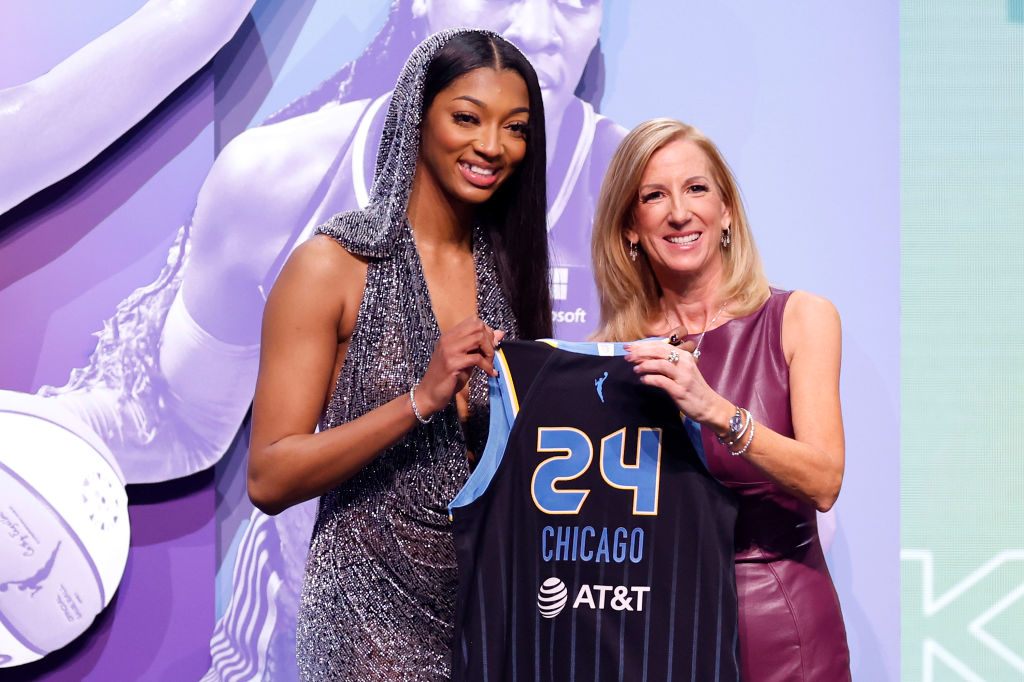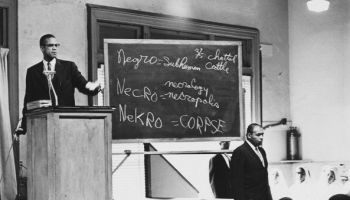By Regina Bradley
I’m not a fan of Nicki Minaj. Yeah, I said it. Her voice and “characters” already took my last nerve. But with her much anticipated freshman release Pink Friday dropping November 22, Minaj is in the mouths of fans and haters alike.
I’m not concerned here, however, with Minaj’s lyricism or talent. I’m interested in what Minaj’s multiple identies suggest about women in hip-hop.
During the 2010 BET Hip Hop Awards, DJ Khaled introduced self-proclaimed entertainer Minaj as “Nicki Minaj, Nicki Minaj, Nicki Minaj, Nicki Minaj, and Nicki Minaj.” As Minaj began to speak, she significantly altered her voice five times to show her “multiple personas.” People cheered.
Whether in the capacity of video models or (f)emcees, women in hip-hop are so underrepresented that they are always fighting against the current. In the powerful (and long overdue) documentary My Mic Sounds Nice old school artists like Roxanne Shante, Salt-N-Pepa, MC Lyte, and Yo Yo talked about the need to lyrically keep their game up. Battling for them was a way to be acknowledged, heard, and visible.
Back in the day, women rappers’ worth was proved by their freestyle form instead of their physical one. Unfortunately, as time marched on, femcees rapping off the top of the dome dwindled to spitting about giving it. Hide your Sprite cans and two liters.
Black women and hypersexuality is not a new conversation. The contemporary moment in which hip-hop women exist, however, is unique. Unlike the earlier wave of female rappers, the most visible women in mainstream hip-hop take stereotypical notions of black women and make them profitable. Lil Kim, Foxy Brown, Trina, Khia and Jacki-O branded themselves as peddlers of the freak nasty.
Cue Nicki Minaj—who is building on this tradition—and making bank as one of the most visible women in the game.
What is particularly striking about her rebranding this old idea is the way she interconnects brand and identity. To Minaj, like Lil’ Kim before her, there’s a need to navigate both hypersexuality and what I call “hypo-visibility,” the underwhelming presence of black women to construct their own, independent identity.
So on the one hand the beef between her and Lil’ Kim is laughable because Minaj uses her sexuality to grab attention and, um, entertain. Young girls sing Minaj’s lyrics down the hallway at school the same way I did Kim’s back in ’97. In much the same way that Lil’ Kim rode with Notorious B.I.G. and Junior Mafia, she’s aligned with the male dominated Young Money. Ditto Karrine Steffans (who got her “big break” on Mystikal’s “Been So Long” video by wearing the most hoochie coo outfit available), Trina who got put on with Trick Daddy and Slip-N-Side), and others.
So what’s the difference? What stands out about Minaj is the way she juggles black women’s sexuality with notions of insanity to create her own space that she colored “pink.” Minaj collapses accepted notions about black women, and in their wake she carves out an alternative space of expression.
Minaj’s images of mental instability pivot on the fear of the crazy black woman and materialism. In her collabo with Ludacris “My Chick Bad,” Minaj rhymes “they say my shoe game crazy, the mental asylum’s lookin’ for me.” Trey Songz’ “Bottoms Up” video visually demonstrates instability by using an unstable camera and jagged movements to show unbalance. Minaj’s delivery follows suit, using a shaky sounding delivery to ask (beg?) Songz for alcohol and attention.
What’s crazy for Black women’s identity politics is that it’s difficult to distinguish Minaj’s acting from her reality. This is especially significant when looking at Minaj’s impact on young women.
A few years back a young, excited woman called in to speak with Minaj on a Shade45 radio interview. After pleasantries, the woman proudly declared that her three year old daughter could recite Minaj’s lyrics verbatim. While Minaj gushed about “how cute that is,” the little girl could be heard in the background reciting explicit lyrics.
A three-year old. Probably in diapers and barely counting to five. But she has a future—as a Nicki Minaj impersonator. Chile boo.
Unfortunately, it is common occurrence that performance identities are removed from their intended spaces. Once removed, they heavily influence social interactions and often promote stereotypes. This is especially true for women. Here’s to hoping American popular culture doesn’t slay Nicki’s monster celebrity out of revenge. Roman or otherwise.
Regina N. Bradley is a doctoral candidate in African American Literature and Culture at Florida State University. She blogs about identity politics, African-American humor, and popular culture at Red Clay Scholar (http://redclayscholar.blogspot.com).
















